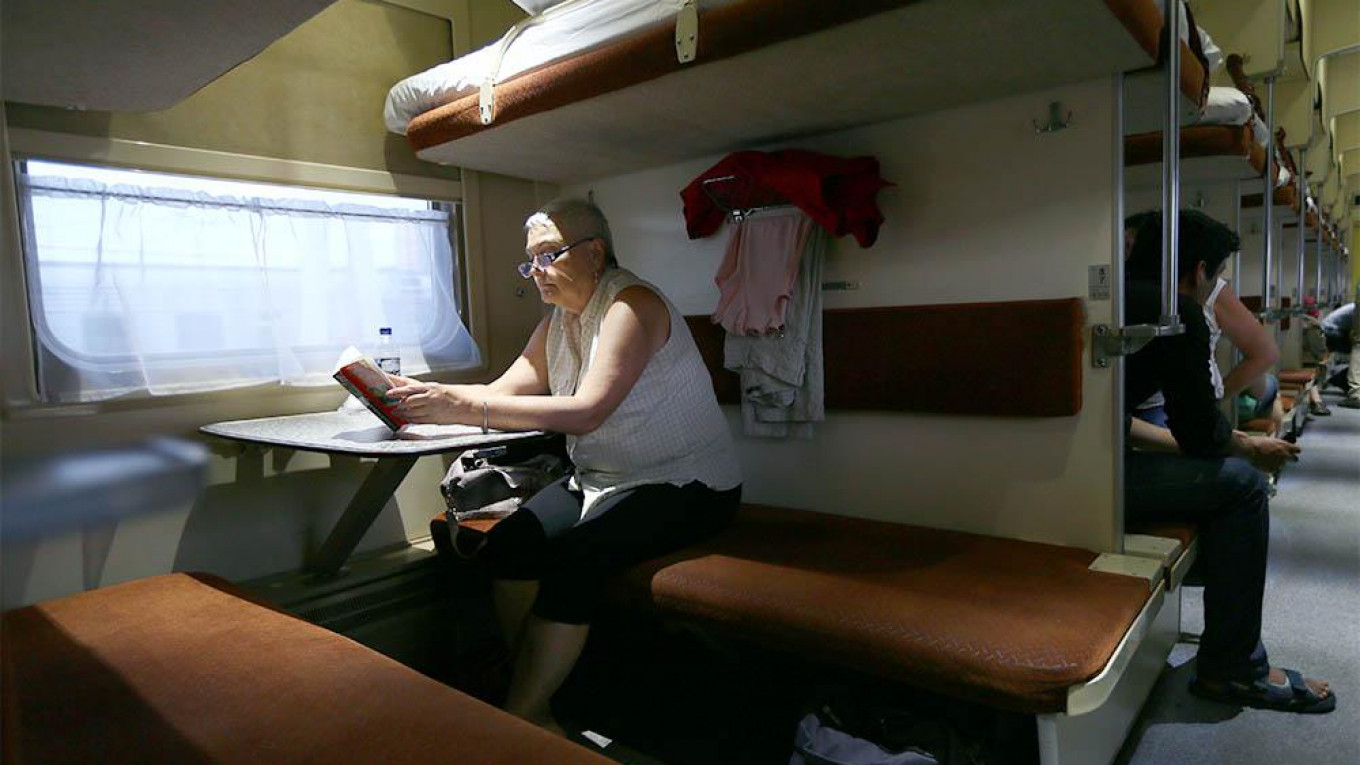Russian train passengers who purchase tickets for top bunks can only sit on the cot below them if they get the consent of the customers who booked those seats, says Russia’s Federal Passenger Company (FSC).
Earlier, reports in Russian media said that passengers with lower-bunk tickets could refuse to allow their compartment-mates to join them on the lower bunk. On Friday, Russia’s Federal Passenger Company, a subsidiary of Russian Railways, cleared up the confusion.
Passengers are limited to “services in accordance with the class specified on their ticket,” the state-run RIA Novosti news agency cited FSC spokesperson Anastasia Fedorova as saying.
By purchasing a ticket, train customers enter into a contractual agreement with the carrier to occupy the space listed on their ticket for the duration of their trip, Fedorova said.
Passengers with bottom-bunk tickets also have priority access to the compartment’s table and lower storage spaces.
“To ensure that long-distance train trips are comfortable for all passengers, the Federal Passenger Company asks that passengers be more considerate and kind to one another.”
A Message from The Moscow Times:
Dear readers,
We are facing unprecedented challenges. Russia's Prosecutor General's Office has designated The Moscow Times as an "undesirable" organization, criminalizing our work and putting our staff at risk of prosecution. This follows our earlier unjust labeling as a "foreign agent."
These actions are direct attempts to silence independent journalism in Russia. The authorities claim our work "discredits the decisions of the Russian leadership." We see things differently: we strive to provide accurate, unbiased reporting on Russia.
We, the journalists of The Moscow Times, refuse to be silenced. But to continue our work, we need your help.
Your support, no matter how small, makes a world of difference. If you can, please support us monthly starting from just $2. It's quick to set up, and every contribution makes a significant impact.
By supporting The Moscow Times, you're defending open, independent journalism in the face of repression. Thank you for standing with us.
Remind me later.






